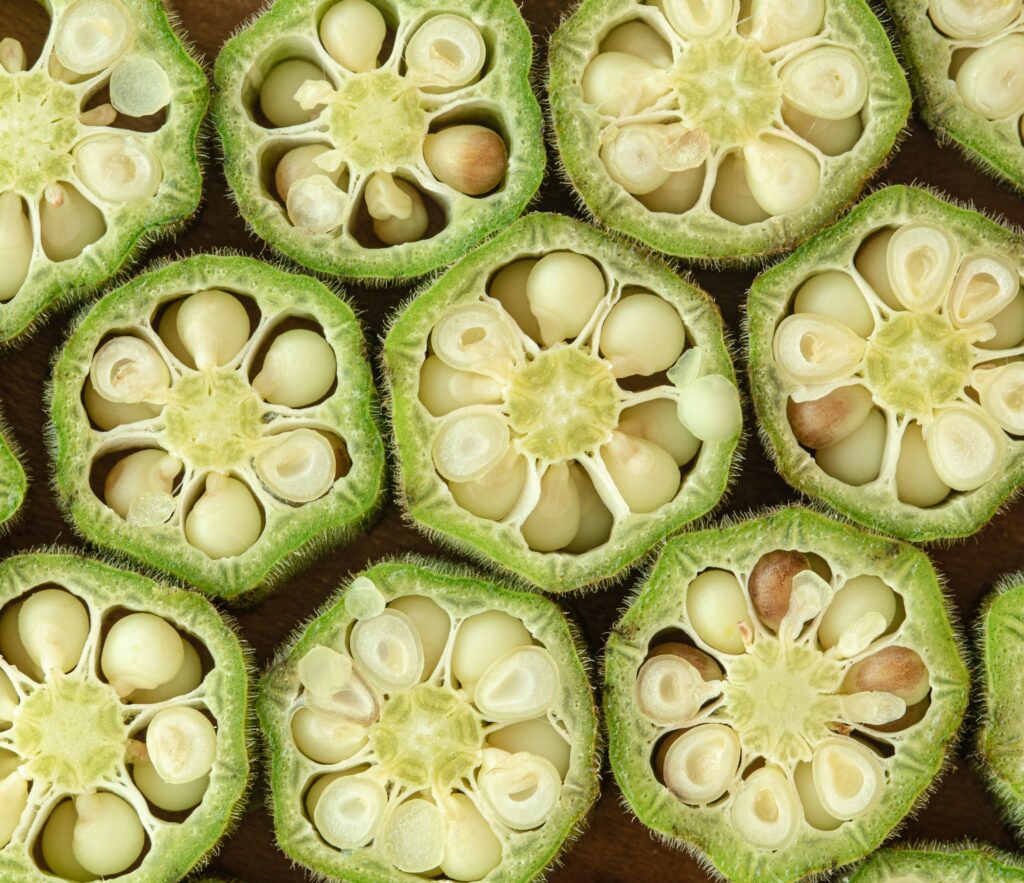A Recipe for Okra

I found myself staring at a plate of cooked okra slices the Sunday after a crazy week at work. I was having lunch at my coworker’s house in Fort Worth, and the last thing I expected was slow-cooked, gooey okra, looking uncomfortably similar to the kind my mother used to make when I was a child. But my brown mother had cooked me okra back in Dhaka, Bangladesh, and there I was, in Texas, eating okra cooked by my very white colleague.
I hadn’t tasted okra in years, not since I left home. My father bought them on Fridays if he was in town, likely because it was the only vegetable I liked eating. It’s difficult to imagine now that he’d buy okra just for me. How did he even know that I liked okra? He was rarely around and didn’t seem all that interested in me. And yet, there he was, on Fridays after Jumu’ah prayer, coming home carrying a plastic bag full of okra.
When I think about my father, only fragmented memories come to mind. In one of them, we’re at the grocery store. I’m eleven or twelve, holding a large can of powdered milk that says, “Extra Calcium!” In the image that I have in my head, I can’t see my father. He’s standing either next to me or behind me saying, “Calcium isn’t always good for you.”
For the life of me, I can’t imagine why he would say that, but there it is, that single line.
Another image that comes to mind is the dark patch of dried, rough skin right above the carpal bones in my father’s wrists. That patch of skin had turned so after years of gentle abuse from our cat. She was a timid creature, but for some weird reason, she liked to chew on his wrists. Nobody else’s, just his. She never bit hard or drew blood. She just liked to sprawl over his forearm, purring gently, and nibbling away.
These are the random thoughts that come to me when I think of my father. I don’t recall a loving hug or pearls of wisdom. No, I remember, “Calcium isn’t always good for you,” or him sitting on the couch late at night, watching the TV with his arm on the armrest, and the damn cat chewing his wrist.
When I was young, my father was gone a lot, often for weeks and months at a time, leaving me alone to deal with my volatile mother. When I decided to leave home and move halfway across the world right out of high school, it was to get away from my abusive mother. As for my father, I didn’t think my absence would be felt when he himself was absent so much of my life.
When the call came on that hot and sticky summer night of 2020, I was in my Denver apartment, playing League of Legends on my computer. I knew what it was. I was expecting it. The voice on the other side of the phone told me that my father was gone, but I kept playing the game. Estranged children do not have the right to mourn their dead parents or shed tears, do they? So, I kept playing my game.
They say that there are five stages of grief: denial, anger, bargaining, depression, and acceptance. I went straight to acceptance. I wasn’t there when he was taken to the hospital. I wasn’t there when he acted like a madman, pushing and shoving the doctors and nurses. I wasn’t there when they tied his arms to the bed and gave him sedatives. I wasn’t there the morning he passed away in his sleep.
* * *
It’s been nine years since I had okra at my colleague’s and almost two years since my father’s passing. I have managed to avoid all the things that remind me of my father, but when I saw okra at the grocery store the other day, I picked up a bunch without realizing what I was doing. Now I just have to find a recipe for it. Should I call my old colleague? Would he freak out if I asked for his okra recipe? In any case, I think I’m ready to taste some okra again.


